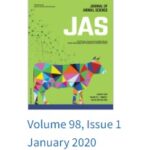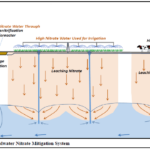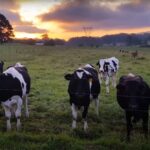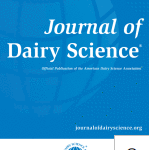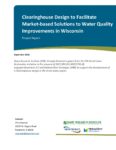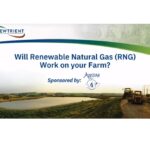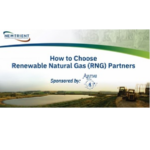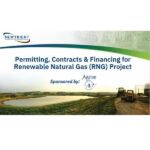Welcome to Newtrient’s Resources Library
Use this library to find webinars, peer reviewed articles, white papers, links to relevant websites and more.
By Judith L Capper, and Roger A Cady. Although milk yield per cow has increased over the past decade, whole-system environmental impact analyses have not been conducted over this time. The objective of this study was to compare the environmental impact of U.S. dairy cattle production in 2007–2017.
Nitrogen interception technology recycles ground water in areas where, because of soil type and other conditions and where manure effluent is being land-applied, there is a danger of elevated groundwater nitrate levels. This technology uses shallow wells in fields that receive wastewater to intercept nitrogen and reuse it for irrigation.
An excellent video produced by Washington State University that highlights two of the innovative ways that the dairy industry is working to address the environmental issues it is facing using new technologies that create usable products and reduce their costs.
This study, led by Dr. Ermias Kebreab, Dr. Frank Mitloehner, and Dr. Daniel A. Sumner from the University of California, Davis, and funded by the California Dairy Research Foundation, finds that California's voluntary climate-smart solutions in the dairy industry could achieve a 40% reduction in methane emissions by 2030.
Researchers provide a comprehensive review of current enteric methane mitigation options to improve the carbon footprint of ruminant food products. The paper highlights the opportunities and barriers to the implementation of the current available options as well as the economic, regulatory, and societal aspects that are key to implementation.
Dairy Research Institute (DRI), through financial support from the EPA Great Lakes Restoration Initiative in the amount of $437,000 (GL 00E02795-0), engaged Newtrient LLC and Michael Best Strategies (MBS) to support the development of a Clearinghouse design in the Great Lakes region.
Part one of a four-part webinar series sponsored by EPA AgSTAR, to help farms from their first steps in the project all the way through breaking ground. Topics include: weighing the risks and rewards. Having conversations with business partners/family. Knowing the right questions to ask, and resources to reach out…
Access a full list of the questions and answers from part one of Newtrient's four-part webinar series sponsored by EPA AgSTAR.
Part two of a four-part webinar series sponsored by EPA AgSTAR. Topics include: What happens after you find out your farm is a good fit for an RNG project. How to select a business model that works for your farm. How to prepare for potential partners and contracts.
Part three of a four-part webinar series sponsored by EPA AgSTAR. Topics include: Guidelines and permitting process, including what to “watch out for”. What to look for in a contract, and how to do proper due diligence. What banks and financers will ask of each farm.

